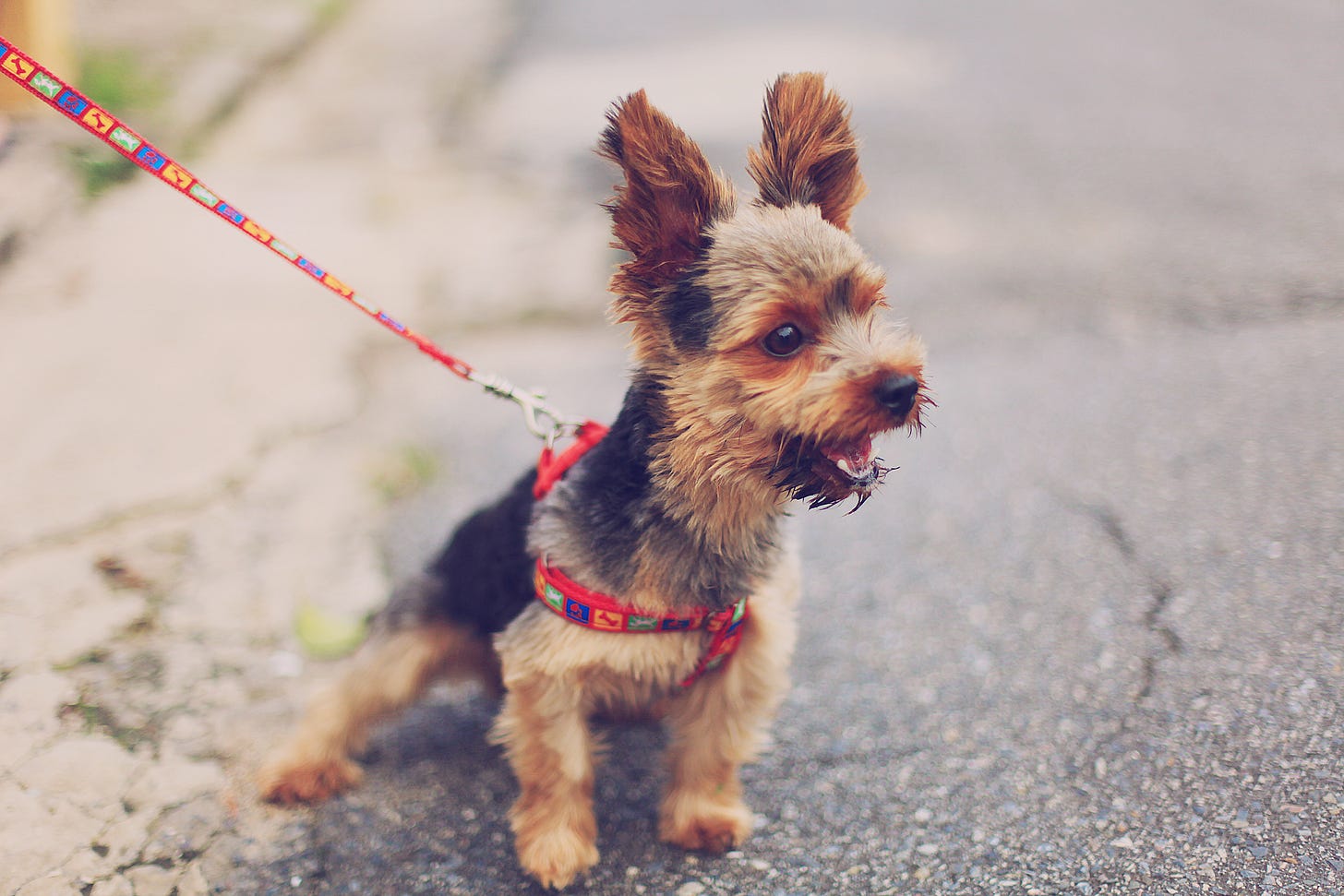Keeping the Frustration out of Social Encounters 🐕
Hello, and welcome back.
As Linda mentioned last week, the time has come where we’re able to start socialising more “normally”.
But just as you might be finding it tricky to navigating a new social life, so might your dogs. Whether it’s due to pent up frustration - after being denied this encounters for the past 12 months - or social anxiety, I wanted to share some advice as to how to help your dog feel most comfortable.
Let’s start, this week, with frustration.
Not only has the past year brought many changes in routine for us humans, but there’s also been a lot of adapting required by our dogs. Whether you’ve been at home more or you’ve just been restricted in meeting up with dog or human friends, your dog’s daily social encounters will have changed dramatically.
For the social divas of our dog world, this has been incredibly frustrating. Whether they’re an older dog who’s used to saying “hello” to their pals - or a young puppy who is just desperate to create their own social circle - being kept away from other dogs and people might have resulted in one very frustrated doggo.
The best way to avoid too much pent up frustration in these early days - which can end up resulting in the wrong behaviours (jumping up, nipping, barking etc) being performed - is to keep new social encounters short. Frustration builds, so by keeping the interactions short (and sweet) your dog won’t be practicing that emotional response each time.
You may need to keep your dog on lead initially, if they’re likely to be a little over-zealous in their greeting of your guests - dog or human. By giving them a really simple job such as just looking at you when you say their name or use an attention cue such as a “kissy” noise, means they’re over-whelmed brains won’t have to think too hard to get the answer right. Make sure you have a reward worth working for too - think small, soft, and stinky treats!
Adding in calm activities either during guests’ visits to your home/garden, or following social encounters on walks, will help your dog’s system get used to a build up of arousal followed by an easy return to a calmer state. Sniffing, licking or chewing are all great options to explore - with sniffing for scattered treats being something you can very easily present both at home and outdoors.
Most importantly, be fair to your dog. If they seem to have forgotten all signs of social manners, it’s not that they’re being “naughty” - it’s simply that they’ve not had a chance to practice those better behaviours in such a long time.
Next time, I’ll talk about how we can support those dogs who are finding new social encounters more worrying.
Until then, enjoy the sunshine and time with loved ones,
Caroline



